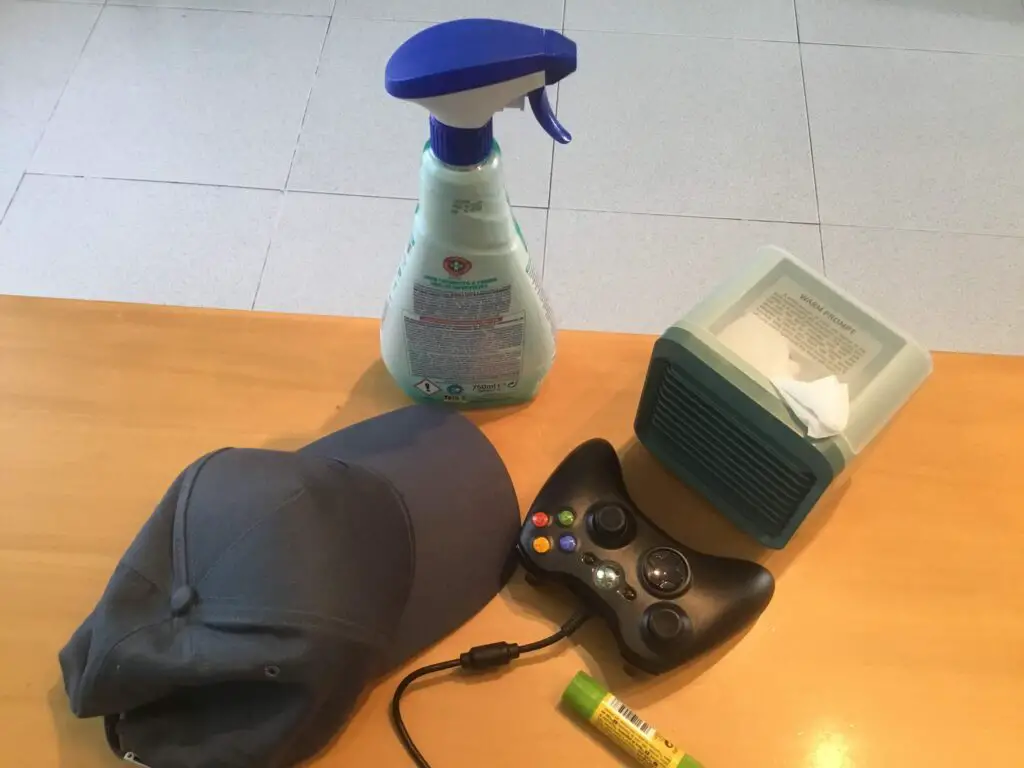Who likes homework? Nobody, right? Especially not if it’s the same dreary worksheets and textbook exercises every time.
Well, some students actually do like homework! That’s because their teachers give them engaging, interesting and unique activities to do.
I used to find setting homework a challenge in EFL/ESL classes. What can you do to give them good practice and develop confidence without boring them to tears?
Simple – do one of the activities on this list!
- Word Hunts
- Narrative Telephone
- What Do You See?
- Write a blog
- Record a vlog
- Scavenger photos
- Watch films & series
- Write a journal
- Listen to podcasts
- Write to a pen pal
- Prepare a mini-presentation
- Read the news
- Enjoy some English music
The first six entries are creative and unique, suitable for classes where you really want to get students active and involved. The following seven are just as engaging, but a little more focused and “normal”.
1. Word Hunts
A Word Hunt is a vocab acquisition activity (a technique I describe in my article How to Elicit Vocabulary).
You can do it in class, with students searching for things they don’t know the word for in English. They take a photo and add it to a list of vocabulary to learn.

The home version is similar. Students go around their house and photograph things they’d like to learn the name for in English. They bring the pictures to class and start learning the words.
It doesn’t have to be restricted to things in their home, either. If they go shopping, to the park, on holiday, etc. they can take photos of things they see and share them with their classmates.
Any student who has their own phone can do this activity. For younger kids, you’ll need the support of the parents.
For more on vocab learning techniques, check out my article Ultimate ESL Vocab Teaching Guide: Revolutionary system.
2. Narrative Telephone
This game features in my 9 EFL/ESL Games and Activities for Advanced Learners article, so it’s an advanced activity. You can adapt it for intermediate students, but it won’t work well with beginners. It requires everyone to have email or a messenger app on their phone. So not ideal for young kids.
You can play it in the classroom, but the homework version is just as fun, if not more so. It’s like the Telephone/Whispers game, but with stories instead of words.

The way it works is the teacher records themself reading a short story and sends it to one of their students. That student listens ONCE. Then they record themself re-telling the story and send it on to the next student who does the same.
This continues until the last student, who records themself re-telling it. They can send the final audio to everyone, or keep it until the next class to share the hilarity.
Here’s a video I made on my YouTube channel that explains how it works:
With a large class, you can set off multiple telephone chains. If you have 30 students, instead of having the chain go all the way around the 30, have three chains which go through 10. Then see which chain transmitted the story the best.
When choosing a story, keep it relatively short (a couple of paragraphs at most) and use it to introduce or consolidate new vocab and grammar.
3. What Do You See?
What Do You See? is another great activity for expanding students’ breadth of language.
They should go somewhere: to the street, the park, into the countryside, etc. You can tell them where to go if you want to direct their learning, for example if you’re learning about transport, they should go near a busy road.
With a pencil and paper, they find a comfortable place and write what they see.

For beginners, this can just be individual words. For intermediates it could be sentences like “I see a woman jogging with her dog.” And for advanced students, challenge them to create a full description of the place, taking into account all the senses.
While they are doing it, they are allowed to look up individual words. In this way they learn language that is immediately relevant. However, they shouldn’t translate sentences. By writing what they see, they develop sentence formation skills.
If you want to avoid making them writing, or want to repeat the activity in a different way, get students to record themselves talking about what they see.
4. Write a Blog
Blogs are a fun way of getting students to explore their interests while using English.
This one isn’t great for young kids who aren’t used to using tech yet, although if their parents are on board, they can help get things set up.
It’s super easy to set up a blog nowadays, and students can post articles from home or from their phone while travelling.
The way you set up the homework really depends on your class. With an individual student, you could get them to write one short article a week, then you can take a look at it in the next class.

With a small group, you might want to alternate who posts an article each week. And with a large class, you may want to choose a few students each week to post their article, or get everyone to write something short every week.
The content of the articles is up to you, or up to your students!
You could make it an account of what they did that week, an explanation of something they know a lot about, or a review of a film or series they recently watched.
5. Record a vlog
Recording a vlog is just like writing a blog, but challenges students speaking skills while on camera.
Yes, it requires students to have access to video recording technology, but let’s be honest, even 10-year-olds nowadays have powerful cameras on their phones.
If you really want to push your students, challenge them to record a short post every day for a full week. Maybe when they’re on the way to school/work or in their free time afterwards.

Again, the content can be whatever you or your students decide.
A word on privacy and safety. If you’re going to do this with students under 18, DEFINITELY get their parents’ permission. Most will be perfectly fine with this.
And if you’re worried about privacy concerns, you can keep the videos private – only for those in the class to watch. Most video content platforms like YouTube and TikTok have this option now.
6. Scavenger photos
A fun challenge for kids and adults alike, scavenger hunts with photos are great fun. Give students a list of things and over the week they have to take a photo of one.
With beginners, this can be household items, food, common things in the city, etc. It’s a great way to introduce new vocabulary.
Challenge students with more abstract things, like “something that is squishy” or “something that you can’t break”.
And go a step further: “something you couldn’t live without” or “something which terrifies you”, or “something worth over a million dollars”.
In the next class, students can share the things they photographed and, with the more abstract ones, talk about why they chose that thing.
7. Watch films & series
Everyone loves watching films and series. Since most of the famous ones are in English, they’re a great resource for fun homework.
You can make things as structured as you like – focus on specific words and grammar that appear in dialogue, or just have a chat about what happened in the film/episode in the next class.
I like to let students recount the events. Older students can even make predictions about what will happen in the next episode.
A word on subtitles: Advanced students should try to watch the English version without subtitles. For most, though, this is too difficult. Just make sure subtitles are in English, not their native language, otherwise you lose all benefits of the activity.
8. Write a journal
Either at the start of the day or before they go to bed, writing a short English entry into a journal is a powerful way of embedding English in students’ day-to-day lives. This activity is for most ages, except the youngest kids.
As a journal is a private endeavour, I would never expect to see it. Just encourage them to write a few sentences, not worrying too much about accuracy.
When they’re writing, they’ll come across words they don’t know. They’ll be motivated to learn this vocabulary, as it’s immediately relevant to their lives. It’s valuable.
This is an example of organic acquisition, something you can learn about in my article What Vocab Should You Teach in EFL/ESL.
9. Listen to podcasts
Podcasts get more and more popular with every year. You can find them on pretty much any topic, and they provide excellent listening practice.
Advanced students can attempt to listen to natural English podcasts in their original form.

For beginners/intermediates, there are some podcasts designed for EFL/ESL learners, podcastsinenglish.com being one example, with British English, and Effortless English for those wanting to learn the American way of speaking.
10. Write to a pen pal
Writing homework is always a tough sell. Pen pals can provide the kind of motivation which is impossible to get from the usual writing assignments.
The challenge is finding pen pals who will write back consistently. PenPal World is a good option to connect with people online, although there are plenty of other sites which do the same.
Alternatively, write the responses yourself. Have an ongoing back and forth of letters between you and your students, where you can get to know each other (and give some helpful corrections!)
11. Prepare a mini-presentation
Mini-presentations are a great peer-teaching activity. Give students a topic (can be anything: grammar, a famous person, a favourite hobby, etc.) and have them do a 1-minute presentation on it in the next class.
Scripts are optional. Personally, I prefer my students to speak without a script, but for those who aren’t as confident, encourage them to make brief notes.
12. Read the news
Reading the news is a more advanced activity. Most newspapers and websites require a fairly high level of English to understand, and the content isn’t interesting for most children.
However, there are websites designed for EFL/ESL students, such as News in Levels and Simple English News. Also, try CBBC Newsround. It’s not specifically for EFL/ESL students, but it is perfect for kids.
For more advanced learners, any news network is great. I prefer BBC News for the quality and clarity of writing.
News-based homework can be formal, with a conversation and questions about specific articles in the next class, or you can allow your students to pick what they read and share their findings.
13. Enjoy some English Music
This one applies to learners of all ages and levels. Many students will already listen to music in English, as it’s popular around the world.
You can make this a structured homework, assigning specific songs, with the aim of recognising certain words or grammar structures. Supplement this by studying the lyrics in class.
Or keep it relaxed. Introduce your students to some new artists, and encourage them to share songs they’ve enjoyed over the week. Ask them why they like the music, how it makes them feel, etc.

With younger kids, just having them listen to English songs is enough. Give parents a playlist to put on in the car or when they wake up in the morning.
Conclusion
Homework can be fun. In fact, I’d argue it should be fun to get the best results.
The important thing is to know your students and keep things varied – that way you won’t have to chase your students up every week.
Thanks for reading, and I hope you use these ideas for wonderful teaching. If you’re looking for ideas of what to do in the classroom, check out my article on Why All EFL/ESL Teachers Should Use Role Play Activities
If you’re looking for more games and activities, check out my other lists:
9 EFL/ESL Speaking Games & Activities Perfect for Beginners
9 EFL/ESL Games & Activities for Intermediate Learners
9 EFL/ESL Games and Activities for Advanced Learners
9 High Energy EFL/ESL Games for Boosting Vocabulary
9 Engaging Homework Ideas for EFL/ESL: No worksheets!
9 Exciting EFL/ESL Activities for Writing & Spelling
9 Fun EFL/ESL Games & Ideas With Standard Playing Cards
9 EFL/ESL Games With No Materials or Preparation Needed
9 EFL/ESL 5 Minute Games Every Teacher Needs to Know
9 Superb EFL/ESL Games & Activities Using Just Pen & Paper
9 Classy EFL/ESL Games & Activities for Adults (+ tips)
9 Confidence-Boosting EFL/ESL Speaking Games for All Levels
9 Exciting Flashcard Games for EFL/ESL Classes








